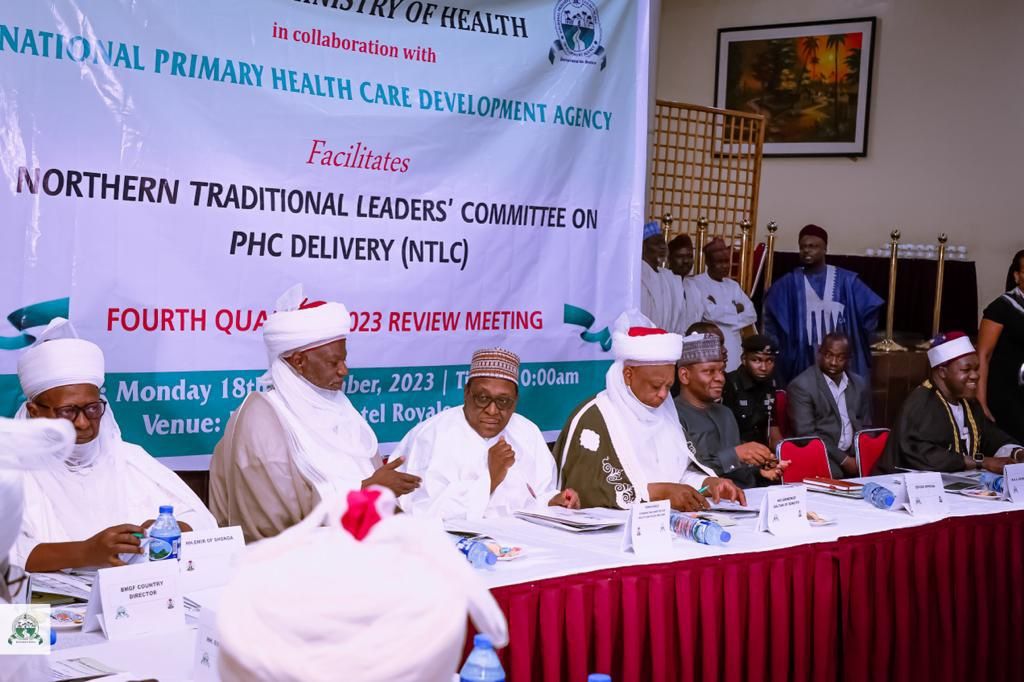To ensure that every Nigerian, especially those living in rural and hard-to-reach, has unhindered access to quality healthcare through primary healthcare (PHC) centres, the National Primary Health Care Development Agency (NPHCDA) has stated that it is working closely with northern traditional leaders under the aegis of the Northern Traditional Leaders Committee (NTLC) on PHC delivery.
Lafiya360 reports that the agency stressed that traditional leaders are critical to ensuring the strengthening and uptake of healthcare services, especially at the PHC level.
Speaking during the fourth quarterly meeting of the NTLC in Abuja, the Sultan of Sokoto, Alhaji Sa’ad Abubakar, in his opening remarks, called on all traditional leaders to leverage their revered position – the loyalty and respect they enjoy from their people – to promote good health practices in their communities.
Worried about the low vaccination indices across the country, he urged traditional leaders to address the myths and misconceptions surrounding vaccines and re-strategize ways to reach out to the communities and individuals with information on the efficacy of vaccines. He also expressed worries concerning antenatal, postnatal, and other basic health care services provided at the. PHC level, vis-a-vis the quality of the services and acceptance.
Speaking about the recently introduced human papillomavirus (HPV) which has proven to be efficient and effective in protecting young girls and women against cervical cancer, he said, “Type 2 polio is still spreading in the northwest and northeast, and that could be linked to complacency in our responses.”
The Coordinating Minister of Health, Prof. Muhammad Ali Pate, in his remarks, while commending the efforts of northern traditional and religious leaders in ensuring that the wild poliovirus is eradicated from the region and Nigeria, noted that the region is still being ravaged by several communicable and non-communicable diseases that could be tackled with vaccines and other preventive measures.
He stressed that vaccines are safe and effective against many of the communicable diseases causing deaths and disabilities in children. “During my recent visit to Maiduguri, I discovered that 80 per cent of children with diphtheria were unvaccinated. That shouldn’t be,” he added.


